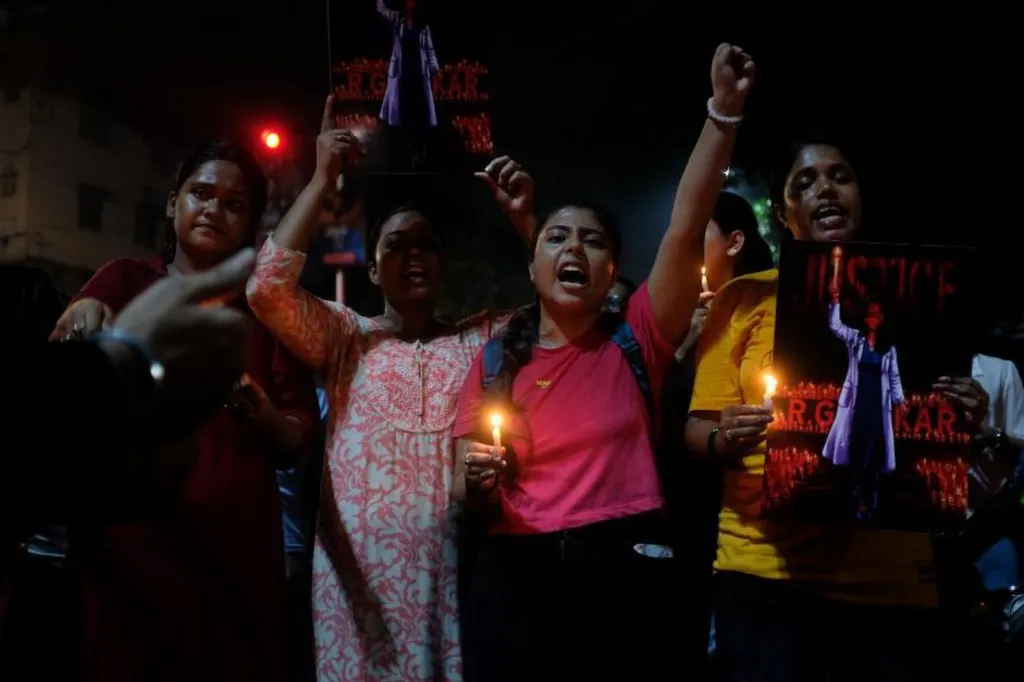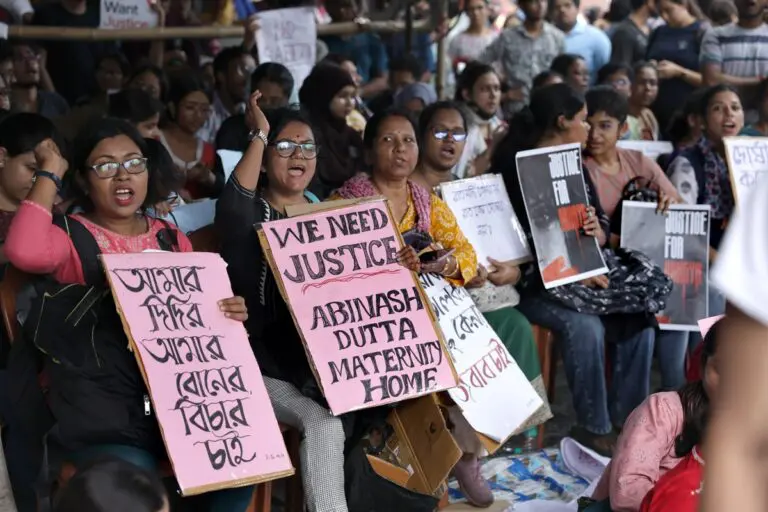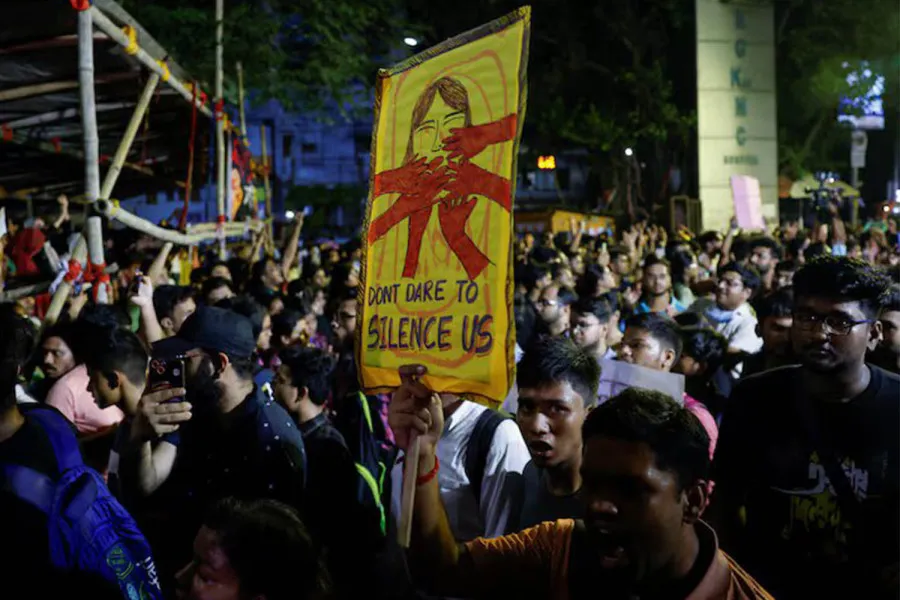
On a stormy Wednesday night, West Bengal witnessed a sight that the state will not soon forget: tens of thousands of women taking to the streets in a powerful outcry against the brutal rape and murder of a young trainee doctor. The “Reclaim the Night” march, a response to a crime that has shaken the nation, was not just a protest—it was a declaration.
A City’s Heartbeat: Women Unite in Anger and Determination
The march, which began as a social media call to action, quickly transformed into a massive, city-wide protest. Women from all walks of life—students, professionals, and housewives—joined forces, marching through the rain-soaked streets of Kolkata and beyond. The atmosphere was electric, fueled by a collective rage that has been simmering for far too long.
Clashes and Chaos Amidst Peaceful Protests
While the marchers themselves remained peaceful, the night was not without incident. A small group of men infiltrated the RG Kar Hospital—the very site where the young doctor was murdered—leading to clashes with the police. Tear gas filled the air as officers tried to regain control, but the chaos did little to dampen the spirit of the marchers who continued their journey, undeterred.

Voices Raised, Justice Demanded
As the clock struck midnight, marking India’s 77th Independence Day, the mood shifted. The loud, passionate chants for justice gave way to a spontaneous, haunting chorus of the national anthem. The rain fell harder, but the protesters pressed on, holding umbrellas and each other, their resolve unbroken. “We want justice,” they cried—more than a slogan, it was a plea, a demand, and a rallying cry for change.
Generations March Together for a Safer Future
For many, the march was about more than just the tragedy at hand—it was about the future. Mothers brought their daughters, hoping to show them the importance of standing up against injustice. “Let her see whether a mass protest can set things right,” one mother said, her 13-year-old daughter by her side. This night, they knew, would be etched in their memories—a lesson in courage and the fight for their rights.
A City United in Spirit
As the march wound through the city, it was clear that it wasn’t just the marchers who were awake. From illuminated homes and crowded verandahs, people watched, some too afraid or unable to join, but their support was palpable. “They may not have participated, but they were with us in spirit,” said Sanchari Mukherjee, a protester who walked miles to join the march.
A Demand for Accountability
The anger that fueled the protests stemmed not only from the horrific crime but also from the perceived mishandling of the case by local authorities. Accusations of a cover-up have only intensified the public’s outrage, leading to the case being transferred to the Central Bureau of Investigation. The young doctor, after a grueling 36-hour shift, was found half-naked with severe injuries—her tragic fate sparking a movement that may change the course of history.

Reclaiming the Night, Reclaiming Their Rights
While “Reclaim the Night” marches are not new in India, the scale of Kolkata’s protest was unprecedented. Drawing inspiration from global movements and past marches in India, this protest was meticulously organized despite limited resources. It was clear in its message: women and marginalized identities have the right to walk the streets without fear, and the time for change is now.
As the night drew to a close, the sentiment among the marchers was clear—this was not just a moment, but the beginning of a movement. “We seized the night,” said Chaitali Sen, a protester. “We’ve never seen anything like this in the city. This is unprecedented. I hope it wakes up the authorities.”
The streets of Kolkata may have emptied, but the echoes of that night’s chants for justice will linger, a reminder that the fight for safety and respect is far from over.



